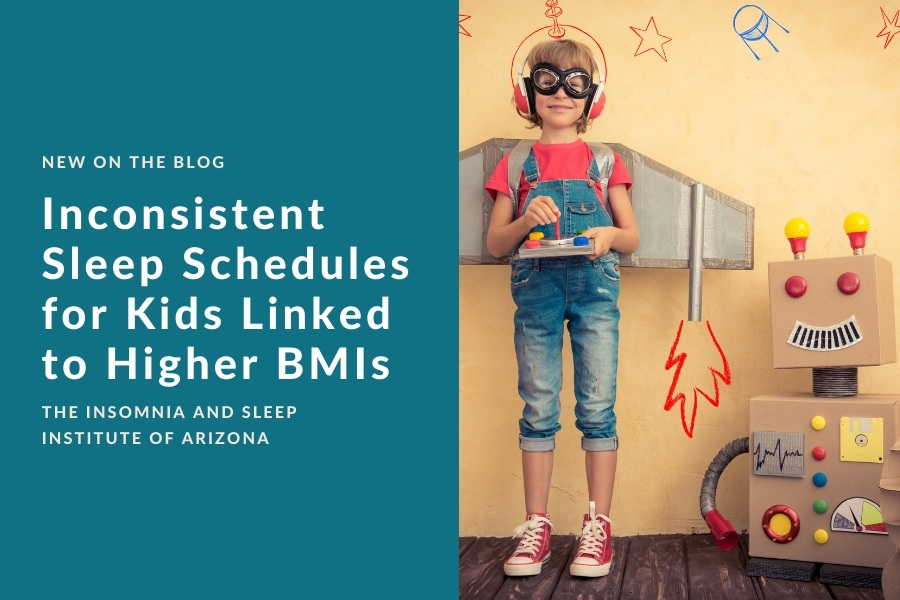Having a good, solid, and consistent sleep schedule and bedtime routine (also known as proper sleep hygiene) is paramount for everyone—but especially children. That’s why The Insomnia and Sleep Institute of Arizona treats patients as young as two. We proudly serve the Phoenix region as the Face of Sleep Medicine in the region, setting the gold standard in sleep medicine for patients above 2 years old. Forming good sleep habits is best done at a young age, and we are outcome-driven to help parents establish a healthy sleep life for their child. From treating insomnia to night terrors and pediatric obstructive sleep apnea, we know that corrective action begins with a correct diagnosis. Every consultation is conducted by a sleep specialist who can provide a diagnosis, followed by testing and treatment if needed.
There are many reasons why children need and deserve a consistent sleep schedule, and one study published in the Annals of Behavioral Medicine reports that kids without such schedules have a higher body mass index (BMI). According to the lead author, “We’ve known for a while that physical activity and diet quality are very strong predictors of weight and BMI … I think it’s really highlighting [things] that sleep may be playing a bigger role here than it’s been given credit for.”
Creating a Foundation for Health Through Sleep
Many adults make the mistake of prioritizing working out and healthy eating while ignoring or even abusing their own sleep schedules. We live in a country and society where it’s often considered a badge of honor to get scant sleep. Many water cooler conversations (either in-person or on Zoom) include comparing who gets the least amount of sleep. Not only are children absorbing these messages, but parents might also be mistakenly encouraging their children to have inconsistent sleep schedules.
Data for the study was derived from an obesity prevention trial for children and mothers in Baltimore, Maryland. The families included were eligible for Special Supplemental Nutrition Programs for Women, Infants, and Children (WIC). In total, 70 percent of families were at or below the poverty line. The data included 207 toddlers who were all kitted out with accelerometers to record both sleep and physical activity for up to one week. Simultaneously, the mothers filled out food diaries, which was compared to the Healthy Eating Index.
Study Revelations: Children BMI
The authors undertook this research because they were interested in the intersection of BMI and poverty, particularly when it came to physical activity, diet, and sleep. The data showed that those living in greater poverty had the least consistent “sleep onset times.” Additionally, these children were also the ones with the highest BMIs. Researchers state that there is a bi-directional relationship at work here. “There’s a lot of teasing out the relationships of the mechanisms that are at play here, which is really difficult to do because I think they’re all influencing each other,” says the lead researcher.
It can be challenging for anyone to enforce a consistent sleep schedule, especially in young children who might struggle with sleep. To be considered “consistent,” children (and adults) should go to bed within one hour of their “usual” time every night. However, this can be difficult for those in poverty because caregivers might not have consistent work schedules, there might be housing insecurity, parenting many children can make this task nearly impossible (particularly if there is just one parent), and so on. The researchers call for interventions to help families create and sustain healthy bedtime routines.
What You Can Do About Quality Sleep
Getting enough, quality, consistent sleep is a cornerstone for overall health—physical, mental, emotional, and social. Tracking BMIs is a very quantitative way of examining how poor sleep and lack of consistency is affecting the body. It is quite likely that this lack of sleep is also negatively informing every other facet of the developing child’s well-being. The Insomnia and Sleep Institute understands that it can be quite challenging to establish such a routine, especially if you have a child who “fights” sleep. However, sometimes these challenges are actually rooted in a sleep disorder. Interventions such as cognitive behavioral therapy for insomnia (CBT-I) and working with a sleep specialist to develop good sleep hygiene can help.
If you suspect your child is not getting the sleep they need, start working with a sleep specialist today. Connect with The Insomnia and Sleep Institute by filling out the online form, or call the office today to schedule your consultation.





